- Home
- Fredric Brown
The Far Cry
The Far Cry Read online
Also by Fredric Brown:
HIS NAME WAS DEATH
Fredric Brown was one of the most innovative writers in both the mystery and science-fiction fields from the early 1940s until the early 1960s. He was much admired by other writers for his mastery of the short story form. Brown was born in Cincinnati but lived much of his life in Milwaukee, where he once worked for the Milwaukee Journal. In 1948 he received the Edgar Allan Poe Award of the Mystery Writers of America. He died in 1972.
THE FAR
CRY
FREDRIC BROWN
Black Lizard Books
Berkeley • 1987
Copyright © 1951 by Fredric Brown. Copyright © renewed 1979 by The Estate of Fredric Brown. The Far Cry is a Black Lizard Book published in 1987 by arrangement with The Estate of Fredric Brown. For information contact: Roberta Pryor, 24 West 55th Street, New York, NY 10019. Black Lizard Books are distributed by Creative Arts Book Company. For information contact: Black Lizard Books, 833 Bancroft Way, Berkeley, CA 94710. Composition by QuadraType.
ISBN 0-88739-045-5
Library of Congress Catalog Card No. 87-70577 Manufactured in the United States of America.
Chapter One
Sudden terror in her eyes, Jenny backed away from the knife, her hand groping behind her for the knob of the kitchen door. She was too frightened to scream and anyway there was no one to hear, no one but the man who came toward her with the knife— and he was mad, he must be mad. Her hand found the knob and turned it; the door swung outward into the night and she whirled through it, running. Death ran after her.
Eight years passed. Then: What happened started quite casually, as most things do. It started on the eighteenth of May, a Thursday.
There was a man named George Weaver who had just taken a room at La Fonda, a hotel in Taos, New Mexico. He had just finished shaving; he was wiping the residue of lather from his face with the moistened end of a towel when the phone rang. He hung the towel over the edge of the washbowl and went out to the hotel room to answer the phone. "Hello," he said.
"George Weaver?" The voice was familiar but he couldn't place it.
He said, "Yes, this is Weaver."
"This is Luke, George. Luke Ashley."
Weaver's face lighted up. "The hell it is! What are you doing in Taos? How'd you know I was here? Where are you?"
The telephone chuckled. "Which question do I answer first?"
"Where are you?"
"At the hotel desk downstairs."
"Then the other questions can wait. Come on up, Luke."
Weaver cradled the phone, then opened the door of his room and left it ajar while he went back into the bathroom and finished drying his face. A chance to see Luke Ashley was both pleasant and unexpected. He hadn't seen Luke in—it must be over two years now.
Looking at his face in the bathroom mirror. Weaver wondered how much change Luke would see in it. The last few months had been pretty hard on that face; they'd done things to it—and it hadn't been much of a face to begin with. Always a little thin, it looked gaunt now and the eyes had a haunted look.
He heard Ashley come in and met him halfway across the room. "Luke, old boy. How in hell did you know I was here? I didn't know I was stopping over here myself until I checked in an hour ago. Intended to drive on through to Santa Fe."
Ashley was tall, thin, balding; he looked a bit like William Gillette as Sherlock Holmes—a very appropriate resemblance, Weaver had often thought, for a writer of true crime stories for the fact detective magazines. And Ashley sometimes humorously capitalized on it. As now, he said:
"Elementary, my dear Weaver. I saw your car parked outside—a green Chevvie coupe with a Missouri license." Ashley sprawled himself into an easy chair and threw his long legs over the arm of it. "Put on a shirt, George, and we'll go down and have a drink somewhere."
"But how did you—? That car's only a year old, Luke, and you never saw it. How'd you know what kind of car I had?"
Ashley sighed. "All right, if we must get down to mundane facts. I'm on my way to the coast—L. A.—and I routed myself through Kansas City so I could stop over a few hours to see you. You'd left only a day ahead of me and Vi told me you were heading for Santa Fe and what route you planned to take. She described your car and gave me the license number in case I caught up with you, so I've been watching for it. When I got to Taos just now, I drove once around the plaza and there you were parked in front of the hotel here. So I came in and asked the clerk if they had any George Weavers on hand, and they did."
Weaver nodded, "You must really have been highballing to catch up to me when I had a full day's start. Well, not too much, maybe; I've been taking my time driving, watching the scenery and not pushing too many hours a day. I've got orders not to be in a hurry about anything. I—I suppose Vi told you about that?"
"A little. I didn't talk to her very long. What are your plans, George?"
Weaver had taken a sport shirt from the suitcase open on the bed and had put it on. Now, buttoning it, he walked over to the window and stood looking out. He said, "Look at those God damned beautiful mountains. I could look at them all summer—and maybe I will. I was heading for Santa Fe, but now I don't know if I'll go the last seventy miles or not. Hell, it's five years now since I lived there and I don't know whether I want to see the people I used to know then or not. Haven't kept up correspondence with any of them. Vi keeps up correspondence with Madge Burke there, the girl who used to work in the restaurant with her, but that's about our only contact.
"I like this place, Luke. Partly because I don't know anybody here, partly because it's smaller than Santa Fe and more peaceful. Besides, it's got something; I don't know what. I feel better already, I think. Anyway, I'm going to stay here at least long enough to look around. If I find a place I'd like to live in, at a price that I can afford, I'll stay all summer."
Ashley nodded. "Taos is a good little town. Beautiful summer climate—it's even better than Santa Fe in the summer. Same altitude, seven thousand. Winters are colder than Santa Fe, I'm told, but that isn't a factor if you're not staying that long anyway. And it's an artists' colony, which means there are interesting people to meet if you get tired of being a hermit and want company."
"You sound as though you know the place pretty well, Luke."
"Just from having spent a week or so here three summers ago. I was writing up the Manby murder case. That was a screwy deal if there ever was one. Know anything about it?"
Weaver shook his head.
"You'll probably hear about it if you stay here; it's a local legend. And there was another pretty good murder case here seven—no, eight years ago. Girl named Jenny Ames. I tried to get enough dope to write that one up too, while I was working on Manby, but I couldn't get enough solid facts to make a good story out of it. And they never caught the killer anyway, and that's a bad angle for a fact crime story."
Weaver said, "I think I remember the name. That would have been while I was living in Santa Fe, and I think I read something about it in the papers. What are you working on now, Luke?"
"Put your shirt tail in and I'll tell you over a drink. Or leave your shirt tail out—nobody in Taos will care."
Weaver put it in. They went down to the plaza and wandered around it and into El Patio; they had cool, tinkling Tom Collinses under a huge sunshade in the open air.
Luke Ashley took a deep breath. "It is nice here, George. I'd forgotten what it's like to breathe this air. It's mańana country, and picturesque as hell. Those blanket Indians you see on the plaza; they're not Chamber of Commerce window dressing. There's a thousand-Indian pueblo a couple miles from town and that's the way they really live and dress. And if you get to know any of the Taos Indians, you'll like them; they're real people."
"Y
ou haven't told me yet what you're doing, Luke. Why the trip to Los Angeles and what will you be doing there and for how long?"
"Just hadn't got around to telling you; didn't mean to be mysterious about it. Regal Pictures is making a documentary on the big-shot gangsters of the Prohibition era in Chicago, centering around the Valentine Day massacre there. I've done a lot of writing about those days and they hired me as technical adviser. It's a three-month contract so I'm driving out in order to have my car to get around in while I'm there. Left Chicago three days ago and I'm due in L. A. in three more. That's all about me.
"Now how about you, George? Vi told me you were coming out here for the summer and that she would join you later, but she—uh—"
"Acted a little funny about it?"
"Well, I wouldn't say that— Oh, hell, she did act a little funny about it. If you don't mind telling me, what's the score ?
Weaver made wet circles on the table with the bottom of his glass. He saw from the whiteness of his knuckles that his hand was clenched too tightly around the drink, and he made his fingers relax.
He said, "A little case of overwork, Luke, that's all. They called it a breakdown. I was in a sanatorium for six weeks. I'd been working too hard and all of a sudden I hit the ceiling and came apart.
"The stay at the san got me over the worst of it, but the doc said I'd better get away from work and spend the summer somewhere trying not to think about—" He managed a grin. "—about whatever business it was that I was in back in Kansas City. I'm supposed to forget it completely, so how can I talk about it? If you happen to remember what business I was in, don't mention real estate to me."
"Real estate? You mean that stuff about land and buildings?"
Weaver pretended to shudder. "Maybe that was it. Anyway, I'm ordered to paint pictures or write poetry or something, for the summer. To get away from everything and into something else. Three months at least, maybe longer. To do anything that interests me—doesn't matter much what—as long as I don't make any money at it."
"Listen, George, with this legal contract, I'm pretty solvent. If I can lend you some dough—"
"Thanks a lot, Luke. But I think I'll get by. I had some pretty stiff losses back in Kansas City—worrying about them and trying to make up for them is part of what started my breakdown—but I cashed out a few thousand bucks enough to get by on for the summer, even for the fall if I stay that long, and still have a few bucks left to start myself in business again when I've got myself completely straightened out. I sold out my business so I wouldn't have to think about it, but it won't take much capital to get started again. That's one good thing about real estate—if you know the game and know the town you're operating in, and I know Kansas City inside out, all you need to start out is enough dough to rent an office and finance yourself a little while. You get listings and take a cut on selling property that doesn't belong to you."
Ashley nodded. "Well, if you run short I can spare some. How long is Vi staying in K. C, before she comes out to join you?"
"She's coming in two or three weeks. We're sending the girls to a summer camp back in the Ozarks—the same one Ellen went to last year, and this year Betty is old enough to go too. But the camp doesn't open until the first of June so Vi is sticking it out back there till she can get the girls into the camp. She'll join me after that."
"How old are your girls now, George?"
"Ellen's six and a half. Betty'll be five in two weeks—just the minimum age the camp will take. They're good kids. Drive me crazy when I'm around them, but I miss them already."
"Do you good to be away from them, though. If peace and quiet is what the doctor ordered—"
"It is. Peace and quiet and anything non-commercial I can get myself interested in. And the girls won't mind being in camp. Anyway, Ellen won't—she was crazy about the place last summer, and I guess Betty'll like it too. And they'll be better off in camp than—"
He broke off, realizing what he'd been about to say. You don't tell even your closest friend that your children might be better off getting away from their mother for a while—and it was probably an exaggeration anyway; Vi wasn't that bad. If Ashley guessed, he didn't ask. He said, "Something's happened to our drinks. Mice, maybe?"
"Could be. Should we have another?"
Ashley looked at his watch, "Maybe we should eat. It's only noon, but I've been driving since six-thirty on a light breakfast. Are you hungry?"
"No—but my appetite's been off. I didn't have any breakfast but coffee this morning, so I should probably try to put something down."
"Let's go, then. There used to be a place here—up the street toward the post office—called La Doña Luz. Wonderful grub. Duncan Hines rating. Run by a guy called Frenchy. If it's still here—"
It was still there. They ate mountain trout and Weaver found he had an appetite after all. It was the best meal he'd eaten in a long time. La Doña Luz had a bar but they walked back to El Patio so they could have their after-lunch drink in the open air again. It was that kind of weather.
They talked about old times together—pleasant, casual conversation. Nothing sinister, nothing sinister at all. Just times they'd gone fishing together, poker games they'd played in, a couple of hunting trips they'd shared—all over two leisurely drinks in the leisurely sunshine.
After a little while Weaver said, "Let's take a drive around. I want a closer look at those mountains. I'll do the driving if you're tired. And, by the way, I'm getting more and more sure that I want to stay here for the summer if I can find a place."
"Okay, let's go. And I'm rested up now, so I'll drive. Let's take my buggy; it's a convertible and I've got the top down "
Ashley drove. Through Arroyo Seco and toward the mountains, along a road that got rougher the farther they went. After a while Ashley waved a hand toward an adobe house set back about twenty yards from the road, the first house they'd seen in about an eighth of a mile. He said, "That's where Jenny Ames got it."
"Who?"
"Jenny Ames. I mentioned her before. Victim in the murder case I couldn't get enough data on. Wasted two days before I saw I wasn't getting anywhere and gave up. But I got a good price for the Manby story so my stay here paid off."
They were past the house by then. Weaver had looked at it back over his shoulder until a turn in the road cut off his view.
"Nice place for a murder," he said. "Plenty isolated."
"Yes, plenty. It's the last house back on this road, nothing between it and the mountains. The road peters out from here; we won't be able to go much farther." He slowed down and pointed to his left. "The girl ran away from the house, back that way toward the foothills; took the murderer—what the hell was his name?—almost a quarter of a mile to catch her."
The road got worse. Ashley decided they'd better turn around and did so at the first wide place he came to.
Weaver asked, "Anybody living there now?"
"Where? Oh, you mean the murder place? It looked deserted when we passed it just now. Nobody was living there three years ago when I tried to write up the story. Up to that time nobody'd lived there since the murder."
"Supposed to be haunted or something?"
"Not that I heard of. Don't know why it would be since the murder itself happened so far away from the building. No, I think the main reason is that it's a little too far from town for most people. And it wouldn't be much good for year-round living because the road gets pretty bad. And there are mostly Spanish people living out this way, and they wouldn't be interested because the land's no good and they want places they can farm, or at least have a garden. Land around there's just sand and sagebrush."
"But there must be a hell of a view from that place. How far is it from Taos?"
"Ummm—we came through Arroyo Seco and that's eight miles from Taos. I'd guess that house is another mile and a half or so. Say nine or ten miles from Taos. Why? You're not thinking of buying the place, are you?"
"No, not buying it. But if I could rent it for the summ
er, why not? There ought to be peace and quiet enough to last me the rest of my life, way out here. Know anything wrong with the idea?"
They were back at the place again and Ashley stopped the car. He looked dubiously across the creek at the house beyond. "Pretty primitive, pal. No plumbing: you'd have to carry water from the creek here—although that's only a few yards and the water's probably purer than you'd get out of a faucet. But there's electricity. And God knows there's isolation if that's what you want. Shall we go up and look at it closer?"
"Sure."
Ashley drove the convertible across the little wooden bridge that spanned the creek between the road and the house.
It was a three-room flat-roofed adobe building. Behind it, ten yards back, stood a rickety wooden outhouse and ten yards beyond that along the same path was a wooden shed. They walked around the house; its windows were boarded and both of the doors were locked.
"Good solid construction,” Ashley said. "Cost a little to fix up, but not much. Labor's cheap here." He peered through a knothole in one of the boards across a window. "The furniture's still in there. Looks like the same stuff that was there when I was inside the place three years ago, which means it's the stuff Nelson left."
Weaver was staring up at the mountains. He asked, "Who's Nelson?"
"I remembered the name. The guy who killed Jenny Ames. Want to hear about it?"
"Not especially. Let's get back into town and find out who owns the place. If I could get it cheap enough— My God, look at that view, I could look at it all summer."
"All right, maybe you will. Come on." They drove back to town and stopped at the Taos Inn, just before they would have reached the plaza. There was a patio there, too, and Ashley led Weaver to one of the tables. "Order yourself a drink," he said. "I'll go find out about that place for you. I'm going to see a guy called Doughbelly Price."
"You're kidding."
"I'm not. That's his name and he either handles or has a line on most of the property that's for sale or rent around here. And, at least three years ago, he had the handling of the Nelson place."

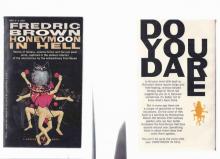 Hall of Mirrors
Hall of Mirrors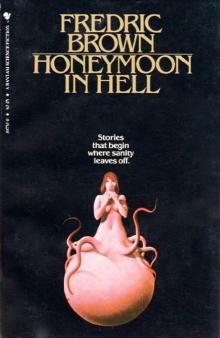 Honeymoon in Hell
Honeymoon in Hell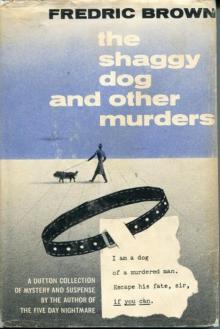 The Shaggy Dog and Other Murders
The Shaggy Dog and Other Murders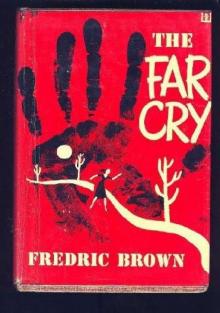 The Far Cry
The Far Cry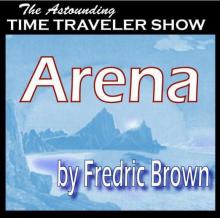 Arena
Arena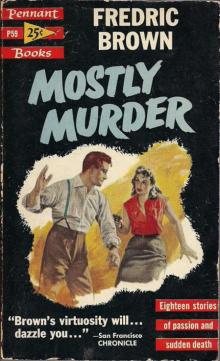 Mostly Murder
Mostly Murder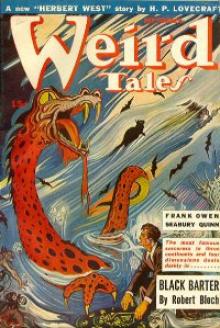 The Geezenstacks
The Geezenstacks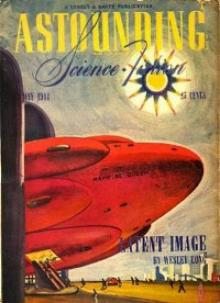 The Yehudi Principle
The Yehudi Principle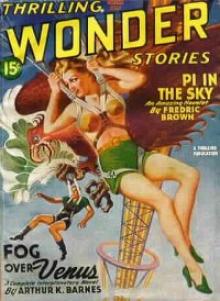 Pi in the Sky
Pi in the Sky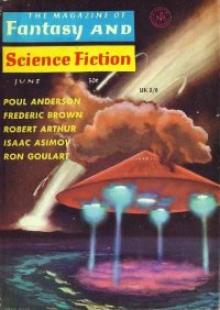 Eine Kleine Nachtmusik
Eine Kleine Nachtmusik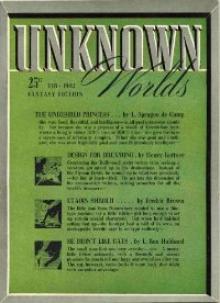 Etaoin Shrdlu
Etaoin Shrdlu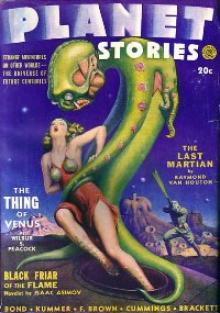 The Star Mouse
The Star Mouse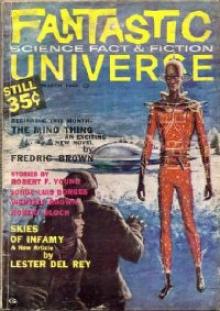 The Mind Thing
The Mind Thing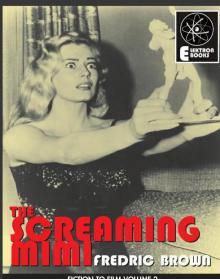 The Screaming Mimi
The Screaming Mimi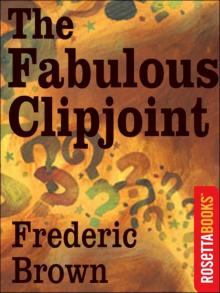 The Fabulous Clipjoint
The Fabulous Clipjoint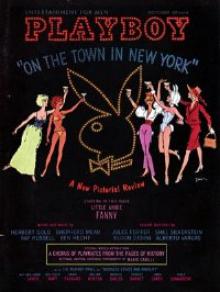 Puppet Show
Puppet Show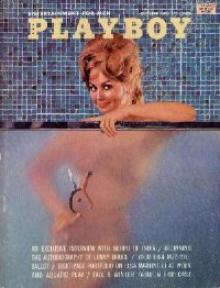 It Didn't Happen
It Didn't Happen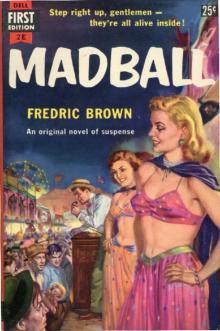 Madball
Madball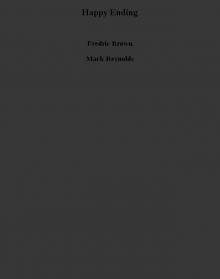 Happy Ending
Happy Ending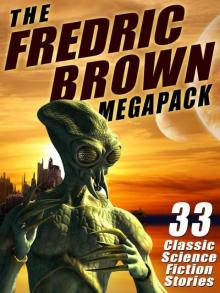 The Fredric Brown Megapack: 33 Classic Science Fiction Stories
The Fredric Brown Megapack: 33 Classic Science Fiction Stories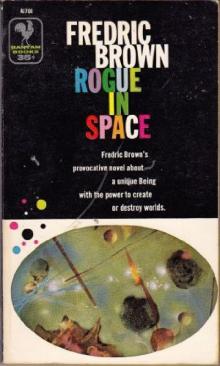 Rogue in Space
Rogue in Space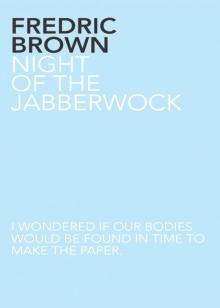 Night of the Jabberwock
Night of the Jabberwock The Dead Ringer
The Dead Ringer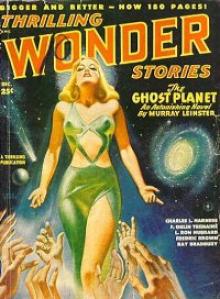 Knock
Knock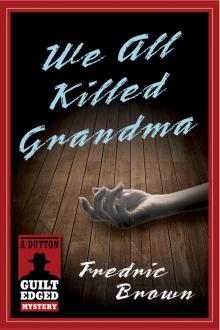 We All Killed Grandma
We All Killed Grandma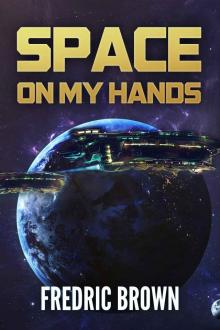 Space On My Hands
Space On My Hands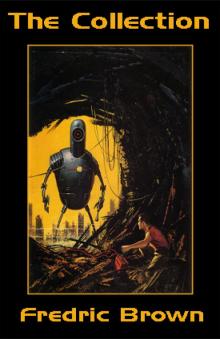 The Collection
The Collection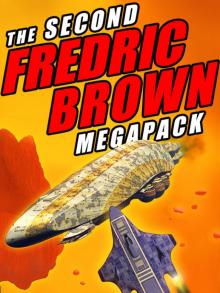 The Second Fredric Brown Megapack: 27 Classic Science Fiction Stories
The Second Fredric Brown Megapack: 27 Classic Science Fiction Stories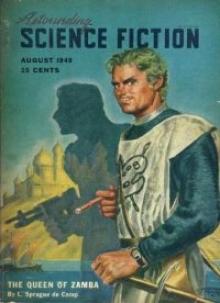 Letter to a Phoenix
Letter to a Phoenix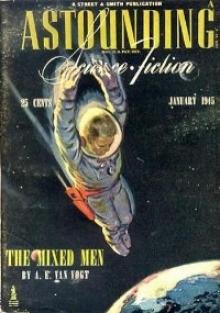 The Waveries
The Waveries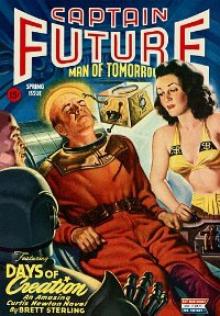 Nothing Sirius
Nothing Sirius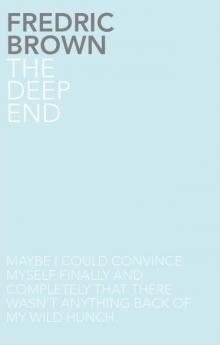 The Deep End
The Deep End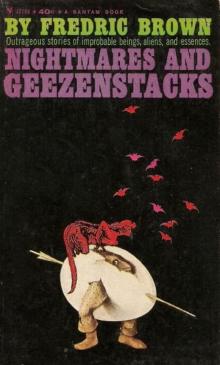 Nightmares & Geezenstacks
Nightmares & Geezenstacks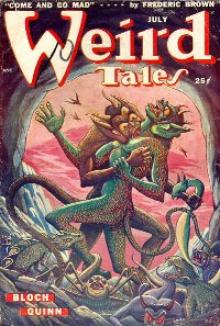 Come and Go Mad
Come and Go Mad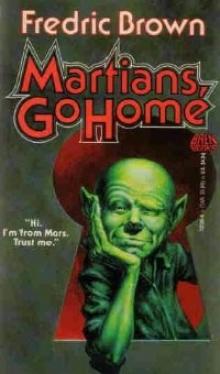 Martians, Go Home
Martians, Go Home